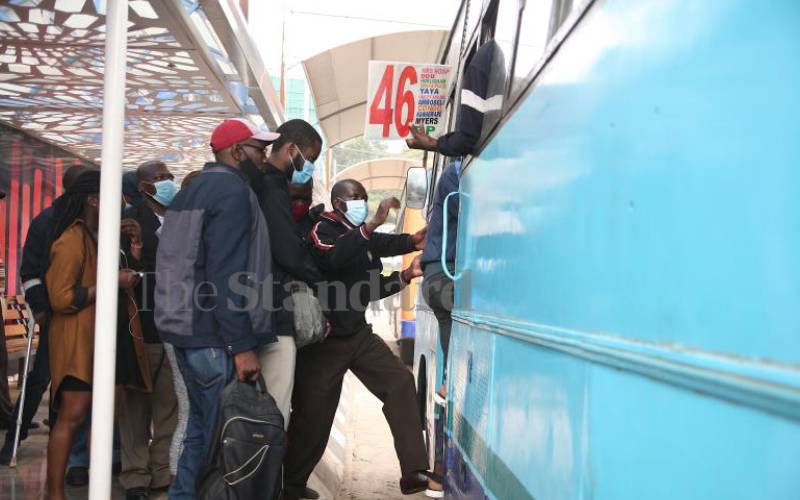×
The Standard e-Paper
Smart Minds Choose Us

Passengers board a bus in Nairobi. [Wilberforce Okwiri, Standard]
Public Service Vehicle (PSV) operators have started reducing fares after they were allowed to carry full capacity last month.